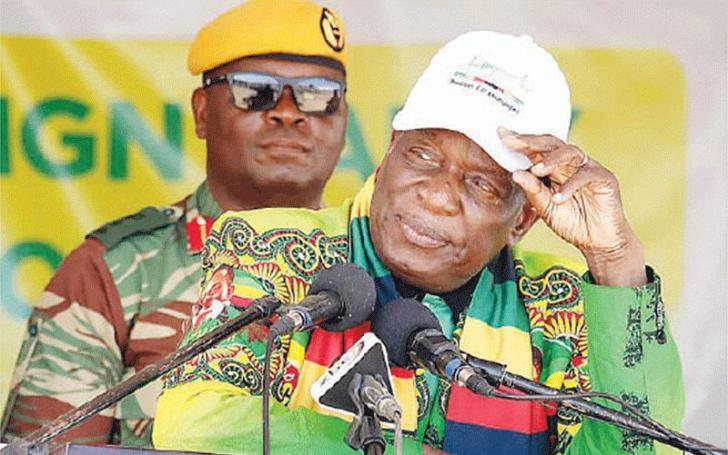News / Local
Mnangagwa wanted to postpone 2023 polls
12 Sep 2023 at 07:30hrs |
4166 Views

Prominent political analyst and Sapes Trust convener, Ibbo Mandaza, has asserted that President Emmerson Mnangagwa attempted to postpone this year's elections by two years to extend his rule and then peacefully step down in 2025. Mandaza revealed this information during an interview with Alpha Media Holdings chairman Trevor Ncube on the platform In Conversation with Trevor.
Mandaza claimed that he received reliable information indicating that Mnangagwa, despite prior denials, had indeed tried to negotiate with opposition leader Nelson Chamisa on such a deal. According to Mandaza, Mnangagwa wanted to delay the elections, form a government of national unity (GNU), and commit to transferring power within two years.
However, Chamisa reportedly rejected the offer, believing he could win the elections. Mandaza went on to suggest that Mnangagwa's rule lacks legitimacy, particularly in light of adverse reports from the Southern African Development Community (SADC) and other election observer missions.
Mnangagwa officially won the August 23 and 24 elections with 52.6% of the vote, while Chamisa garnered 44%. Nonetheless, Chamisa disputed the results as a "gigantic fraud" and launched a diplomatic campaign to gain regional support for his election dispute.
Mandaza speculated that Mnangagwa might propose a Government of National Unity to preempt SADC action and to secure a peaceful exit in the next two years, up to 2025. He suggested that Mnangagwa has been struggling to return the military to the barracks, making a smooth transition crucial.
Mandaza and Tony Reeler are currently gathering signatures for a petition to the SADC Organ on Politics, Defence, and Security to push for a political settlement in Zimbabwe. The petition acknowledges flaws in the August 23 and 24 elections and has been shared with regional governments through their foreign affairs ministries, amassing over 30,000 signatures to date.
Mandaza claimed that he received reliable information indicating that Mnangagwa, despite prior denials, had indeed tried to negotiate with opposition leader Nelson Chamisa on such a deal. According to Mandaza, Mnangagwa wanted to delay the elections, form a government of national unity (GNU), and commit to transferring power within two years.
However, Chamisa reportedly rejected the offer, believing he could win the elections. Mandaza went on to suggest that Mnangagwa's rule lacks legitimacy, particularly in light of adverse reports from the Southern African Development Community (SADC) and other election observer missions.
Mandaza speculated that Mnangagwa might propose a Government of National Unity to preempt SADC action and to secure a peaceful exit in the next two years, up to 2025. He suggested that Mnangagwa has been struggling to return the military to the barracks, making a smooth transition crucial.
Mandaza and Tony Reeler are currently gathering signatures for a petition to the SADC Organ on Politics, Defence, and Security to push for a political settlement in Zimbabwe. The petition acknowledges flaws in the August 23 and 24 elections and has been shared with regional governments through their foreign affairs ministries, amassing over 30,000 signatures to date.
Source - newsday
Join the discussion
Loading comments…































